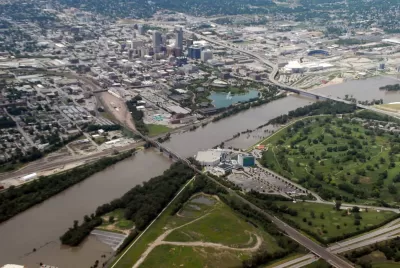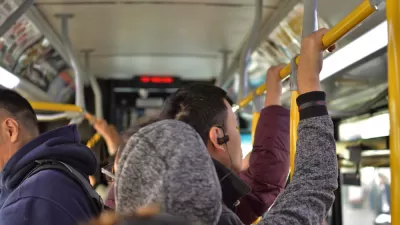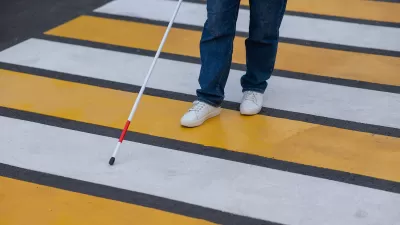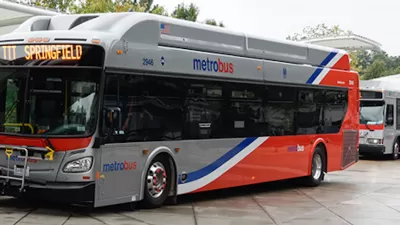The plan calls for more frequent service, expanded bus lines, and connectivity between different modes of transit.

Omaha's Metro Transit agency has launched an initiative designed to "fuse modern connectivity with the growing demand for public transit" and shift "Omaha toward a city that’s virtually car-less," reports Lauren Melendez. "Although Metro Transit operates hundreds of general bus routes including OBRT and MOBY Paratransit, their ADA accessible service, its connectivity goals aren’t limited to buses." According to Jason Rose, Metro Transit’s Communications Manager, "[w]e want people to have options, whether that’s being able to choose to ride the bus or ride a bike or access a bike lane or access a scooter or use their wheelchair on a sidewalk or walk."
Rose said the agency's goals include "[b]etter bus stops, more frequent buses, more buses in more places, potential ORBT expansion and potential service types that we don't serve right now." They are also partnering with the Greater Omaha Chamber of Commerce and their Connect-Go program, which aims to create a comprehensive network of transportation modes and "unify the transportation vision so that every mode is considered together."
"The North Omaha area is considered Metro Transit’s priority corridor, meaning the neighborhood would be the first to see ridership changes and enhancements in the coming months or years because it is so massive." The agency is still working to secure funding and establish a timeline for the improvements, and asking the public to provide their input and suggestions.
FULL STORY: Metro Transit focusing on North Omaha for new, enhanced service

Alabama: Trump Terminates Settlements for Black Communities Harmed By Raw Sewage
Trump deemed the landmark civil rights agreement “illegal DEI and environmental justice policy.”

Study: Maui’s Plan to Convert Vacation Rentals to Long-Term Housing Could Cause Nearly $1 Billion Economic Loss
The plan would reduce visitor accommodation by 25% resulting in 1,900 jobs lost.

Planetizen Federal Action Tracker
A weekly monitor of how Trump’s orders and actions are impacting planners and planning in America.

Wind Energy on the Rise Despite Federal Policy Reversal
The Trump administration is revoking federal support for renewable energy, but demand for new projects continues unabated.

Passengers Flock to Caltrain After Electrification
The new electric trains are running faster and more reliably, leading to strong ridership growth on the Bay Area rail system.

Texas Churches Rally Behind ‘Yes in God’s Back Yard’ Legislation
Religious leaders want the state to reduce zoning regulations to streamline leasing church-owned land to housing developers.
Urban Design for Planners 1: Software Tools
This six-course series explores essential urban design concepts using open source software and equips planners with the tools they need to participate fully in the urban design process.
Planning for Universal Design
Learn the tools for implementing Universal Design in planning regulations.
Caltrans
Smith Gee Studio
Institute for Housing and Urban Development Studies (IHS)
City of Grandview
Harvard GSD Executive Education
Toledo-Lucas County Plan Commissions
Salt Lake City
NYU Wagner Graduate School of Public Service





























